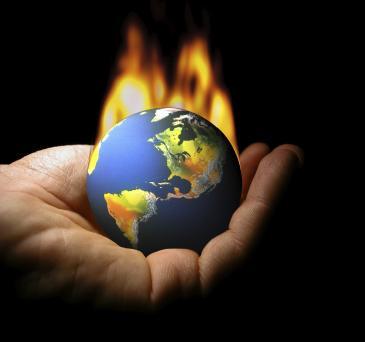Posted on January 28, 2014 by David

Tonight, Tue Jan 28, 2014, the Concord Area Humanists had their Small Discussion Group at the Concord Library. The goal at the meeting was to rank several issues for future discussions. Although there was much discussion on many topics, I’m not sure that it led to any ranking.
One of the topics covered by Pam and others was the concern of Climate Change and getting businesses to recognize that it is in their financial and economic interest to be concerned and to act accordingly. When I got home, I had received a Twitter message from Jeffrey Sachs, a chief economist at the United Nations, asking us to read an article in the New York Times, Jan 23, 2014, entitled “Industry Awakens to Threat of Climate Change”.
Both Coca Cola and Nike have suffered from problems in their upstream suppliers of water in Asia due to extreme weather conditions. The article goes on to say how corporate leaders and politicians are meeting now in Davos to discuss the threat of climate change where “The emphasis will be less about saving polar bears and more about promoting economic self-interest.” The article ends by stating several conservative economists who are in agreement that “there will be agriculture and economic effects”.
Included within the body of the New York Times article was a link to The World Bank News with an article “World Bank Group President: This is the Year of Climate Action”.
Instead of re-capping, the New York Times article, I am going to just lift several portions for those who don’t want to read the entire article. The following are quotes:
Coca-Cola has always been more focused on its economic bottom line than on global warming, but when the company lost a lucrative operating license in India because of a serious water shortage there in 2004, things began to change.
Today, after a decade of increasing damage to Coke’s balance sheet as global droughts dried up the water needed to produce its soda, the company has embraced the idea of climate change as an economically disruptive force.
Coke reflects a growing view among American business leaders and mainstream economists who see global warming as a force that contributes to lower gross domestic products, higher food and commodity costs, broken supply chains and increased financial risk. Their position is at striking odds with the longstanding argument, advanced by the coal industry and others, that policies to curb carbon emissions are more economically harmful than the impact of climate change.
In Philadelphia this month, the American Economic Association inaugurated its new president, William D. Nordhaus, a Yale economist and one of the world’s foremost experts on the economics of climate change.
“There is clearly a growing recognition of this in the broader academic economic community,” said Mr. Nordhaus, who has spent decades researching the economic impacts of both climate change and of policies intended to mitigate climate change.
In Washington, the World Bank president, Jim Yong Kim, has put climate change at the center of the bank’s mission, citing global warming as the chief contributor to rising global poverty rates and falling G.D.P.’s in developing nations. In Europe, the Organization for Economic Cooperation and Development, the Paris-based club of 34 industrialized nations, has begun to warn of the steep costs of increased carbon pollution.
Nike has already reported the impact of climate change on water supplies on its financial risk disclosure forms to the Securities and Exchange Commission.
Both Nike and Coke are responding internally: Coke uses water-conservation technologies and Nike is using more synthetic material that is less dependent on weather conditions. At Davos and in global capitals, the companies are also lobbying governments to enact environmentally friendly policies.
In the United States, the rich can afford to weigh in. The California hedge-fund billionaire Thomas F. Steyer, who has used millions from his own fortune to support political candidates who favor climate policy, is working with Michael R. Bloomberg, the former New York mayor, and Henry M. Paulson Jr., a former Treasury secretary in the George W. Bush administration, to commission an economic study on the financial risks associated with climate change. The study, titled “Risky Business,” aims to assess the potential impacts of climate change by region and by sector across the American economy.
“This study is about one thing, the economics,” Mr. Paulson said in an interview, adding that “business leaders are not adequately focused on the economic impact of climate change.”
Also consulting on the “Risky Business” report is Robert E. Rubin, a former Treasury secretary in the Clinton administration. “There are a lot of really significant, monumental issues facing the global economy, but this supersedes all else,” Mr. Rubin said in an interview. “To make meaningful headway in the economics community and the business community, you’ve got to make it concrete.”
Last fall, the governments of seven countries — Colombia, Ethiopia, Indonesia, South Korea, Norway, Sweden and Britain — created the Global Commission on the Economy and Climate and jointly began another study on how governments and businesses can address climate risks to better achieve economic growth. That study and the one commissioned by Mr. Steyer and others are being published this fall, just before a major United Nations meeting on climate change.
Although many Republicans oppose the idea of a price or tax on carbon pollution, some conservative economists endorse the idea. Among them are Arthur B. Laffer, senior economic adviser to President Ronald Reagan; the Harvard economist N. Gregory Mankiw, who was economic adviser to Mitt Romney’s presidential campaign; and Douglas Holtz-Eakin, the head of the American Action Forum, a conservative think tank, and an economic adviser to the 2008 presidential campaign of Senator John McCain, the Arizona Republican.
“There’s no question that if we get substantial changes in atmospheric temperatures, as all the evidence suggests, that it’s going to contribute to sea-level rise,” Mr. Holtz-Eakin said. “There will be agriculture and economic effects — it’s inescapable.” He added, “I’d be shocked if people supported anything other than a carbon tax — that’s how economists think about it.”
David Kimball


Add your comment